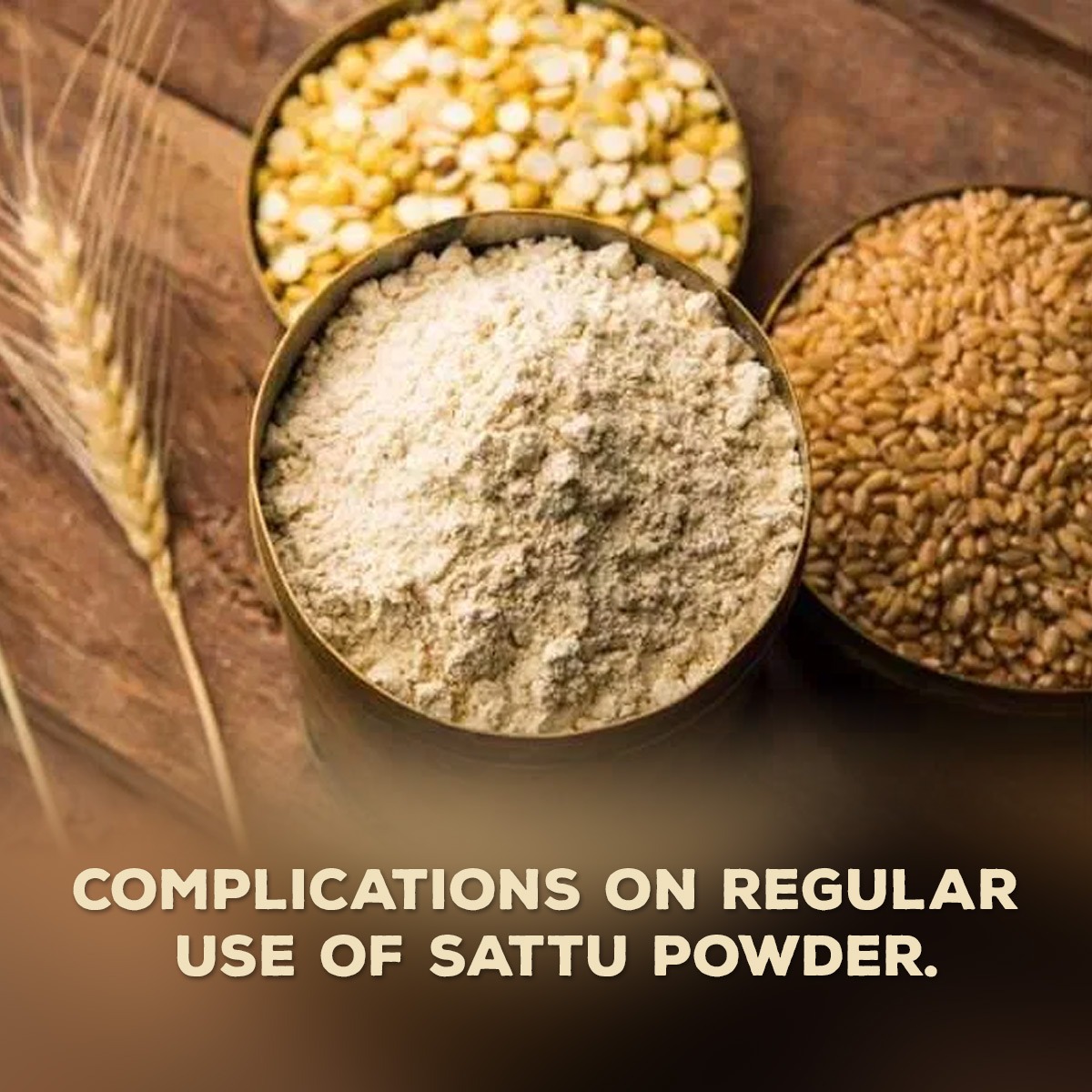Sattu, a traditional Indian food made from roasted gram flour, is renowned for its numerous health benefits, including its high protein content, dietary fiber, and essential minerals. While it is generally considered a nutritious addition to one’s diet, regular consumption of sattu powder can sometimes lead to complications, particularly if not consumed appropriately. Here are some potential issues to be aware of:
Digestive Issues
One of the primary concerns with regular consumption of sattu powder is its high fiber content. While dietary fiber is essential for a healthy digestive system, excessive intake can lead to gastrointestinal discomfort. Symptoms such as bloating, gas, and constipation can occur if the body is not accustomed to high fiber levels. This is particularly pertinent for individuals with a low-fiber diet who suddenly start consuming large amounts of sattu.
Allergic Reactions
Though rare, some individuals may have an allergy to legumes, including chickpeas, which are a primary ingredient in sattu. Allergic reactions can range from mild symptoms like itching and hives to more severe reactions such as anaphylaxis. It’s crucial for individuals with known legume allergies to avoid sattu or consult with a healthcare provider before incorporating it into their diet.
Kidney Stone Risk
Sattu is rich in oxalates, compounds that can bind with calcium in the kidneys to form kidney stones. Individuals with a history of kidney stones or those prone to developing them should be cautious with their sattu intake. It’s advisable for these individuals to limit consumption and ensure adequate hydration to help flush out oxalates from the body.
Blood Sugar Levels
For diabetics or those monitoring their blood sugar levels, sattu powder can have varying effects. While it has a low glycemic index and can help in managing blood sugar levels when consumed in moderation, excessive intake might lead to unexpected spikes in blood sugar. Therefore, it’s important for diabetics to monitor their blood glucose levels closely when introducing sattu into their diet and to consume it in controlled portions.
Weight Gain
Sattu is often promoted for its ability to aid in weight management due to its high protein and fiber content, which can help in feeling full for longer periods. However, like any food, consuming it in excessive quantities can lead to weight gain. This is particularly true if sattu is prepared with added sugars or high-calorie ingredients, such as ghee or sweeteners, which can significantly increase its calorie content.
Nutrient Imbalance
Relying heavily on sattu for nutritional needs can lead to a nutrient imbalance. While it is a good source of protein and certain minerals, it does not provide all the necessary nutrients required for a balanced diet. Over-reliance on sattu might lead to deficiencies in other essential nutrients like vitamins A, C, D, and B12, which are not abundant in sattu.
Interaction with Medications
Certain components in sattu might interact with medications. For instance, high fiber content can affect the absorption of some drugs, reducing their efficacy. Individuals on medication should consult with healthcare professionals to understand any potential interactions between sattu and their prescriptions.
Conclusion
Sattu powder, when consumed in moderation, can be a highly beneficial addition to a balanced diet, offering numerous health benefits. However, like any dietary component, it is important to be aware of potential complications. Gradual introduction, mindful consumption, and a varied diet are key to maximizing its benefits while minimizing adverse effects. Individuals with specific health conditions or dietary restrictions should seek professional advice to ensure that incorporating sattu into their diet is safe and beneficial for their individual health needs.



One thought on “Complications on Regular Use Of Sattu Powder”
Comments are closed.